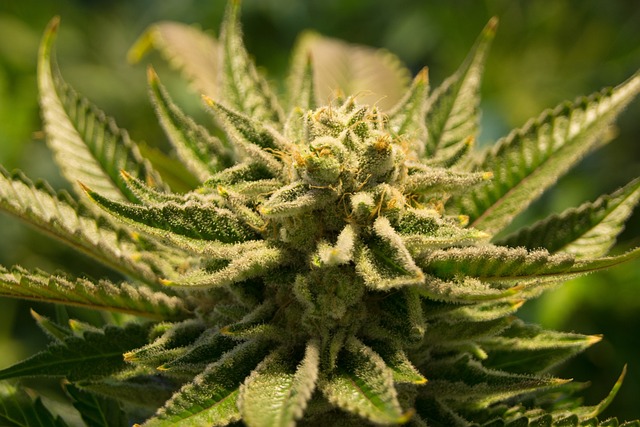The Science Behind THCa Flower Benefits
December 20, 2024

The Science Behind THCa Flower Benefits
In recent years, the cannabis industry has seen a surge in interest surrounding. Where to shop for THCa Flower, a non-psychoactive cannabinoid found in raw cannabis plants. Unlike its more famous counterpart, THC, THCa does not produce a high when consumed. Instead, it offers a range of potential health benefits that are garnering attention from researchers and consumers alike. This article explores the science behind THCa flower benefits, providing insights into its therapeutic potencccccctial.
Understanding THCa: The Basics
THCa, or tetrahydrocannabinolic acid, is the acidic precursor to THC. It is found in abundance in raw and live cannabis plants. When cannabis is heated through smoking, vaping, or cooking, THCa undergoes decarboxylation, a process that converts it into THC, the compound responsible for the psychoactive effects associated with cannabis use.
Unlike THC, THCa does not bind effectively to CB1 receptors in the brain, which is why it does not produce a high. This characteristic makes THCa flower an attractive option for those seeking the therapeutic benefits of cannabis without the psychoactive effects.
Potential Health Benefits of THCa
Research into the benefits of THCa is still in its early stages, but preliminary studies and anecdotal evidence suggest several potential health benefits:
- Anti-inflammatory Properties: THCa has shown promise in reducing inflammation, which could be beneficial for conditions such as arthritis and inflammatory bowel disease.
- Neuroprotective Effects: Some studies suggest that THCa may have neuroprotective properties, potentially offering benefits for neurodegenerative diseases like Alzheimer’s and Parkinson’s.
- Anti-emetic Effects: THCa may help reduce nausea and vomiting, making it a potential option for patients undergoing chemotherapy or those with chronic nausea.
- Appetite Stimulation: While THC is known for its appetite-stimulating effects, THCa may also play a role in increasing appetite, which could be beneficial for individuals with conditions that cause appetite loss.
Scientific Studies and Case Examples
Several studies have explored the potential benefits of THCa, providing a foundation for further research:
A 2013 study published in the British Journal of Pharmacology examined the anti-inflammatory effects of THCa in animal models. The researchers found that THCa reduced inflammation and pain in mice, suggesting its potential as an anti-inflammatory agent.
In another study, researchers investigated the neuroprotective effects of THCa in a model of Parkinson’s disease. The study, published in the journal Phytomedicine, found that THCa helped protect neurons from damage, indicating its potential for neurodegenerative conditions.
Case studies have also highlighted the potential benefits of THCa. For instance, some patients with epilepsy have reported a reduction in seizure frequency and severity when using THCa-rich cannabis products. While these reports are anecdotal, they underscore the need for further clinical research.
How to Use THCa Flower
For those interested in exploring the benefits of THCa, there are several ways to incorporate it into a wellness routine:
- Raw Consumption: Consuming raw cannabis leaves or flowers in smoothies or salads can provide THCa without the psychoactive effects of THC.
- Tinctures and Oils: THCa tinctures and oils offer a convenient way to consume THCa, allowing for precise dosing and easy incorporation into daily routines.
- Topicals: THCa-infused creams and balms can be applied directly to the skin for localized relief from inflammation and pain.
Legal Considerations
The legal status of THCa varies by region, as it is often classified alongside THC. In areas where cannabis is legal for medical or recreational use, THCa products are generally available. However, in regions with stricter cannabis laws, access to THCa may be limited. Consumers should familiarize themselves with local regulations before purchasing or using THCa products.
Conclusion
THCa offers a promising avenue for those seeking the therapeutic benefits of cannabis without the psychoactive effects. While research is still in its infancy, early studies and anecdotal evidence suggest that THCa may have anti-inflammatory, neuroprotective, anti-emetic, and appetite-stimulating properties. As interest in this cannabinoid grows, further research will be essential to fully understand its potential and to develop effective THCa-based therapies. For now, individuals interested in THCa can explore various consumption methods and stay informed about ongoing research and legal developments.